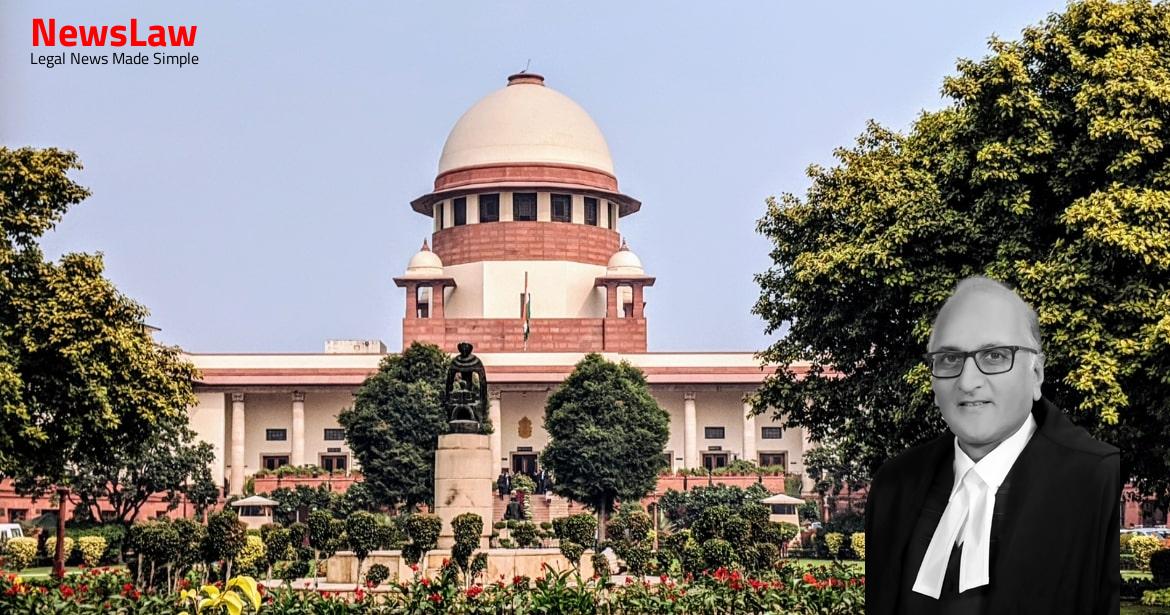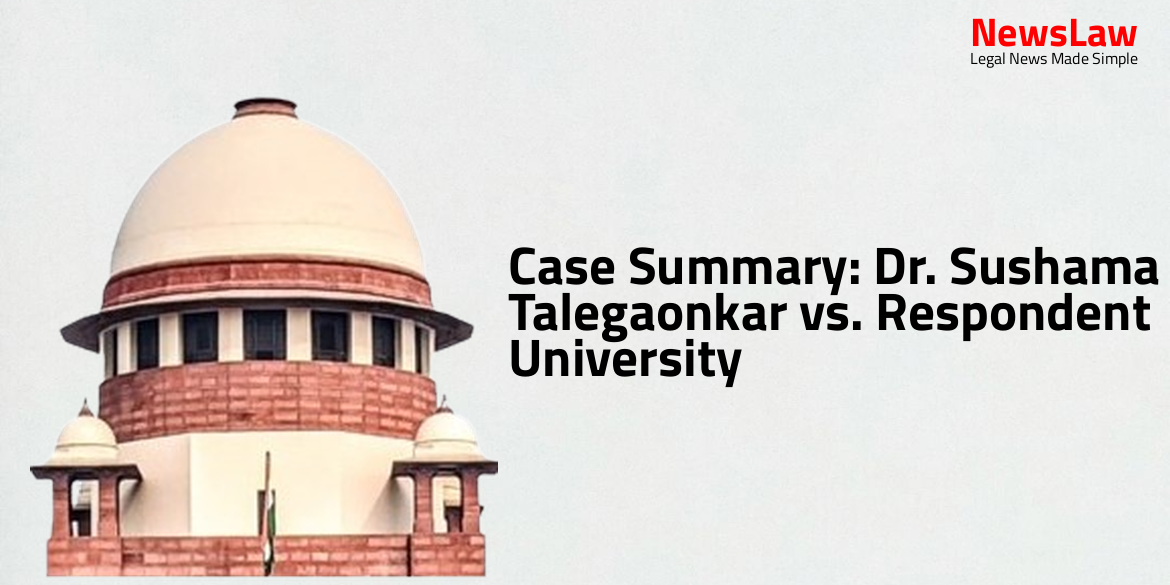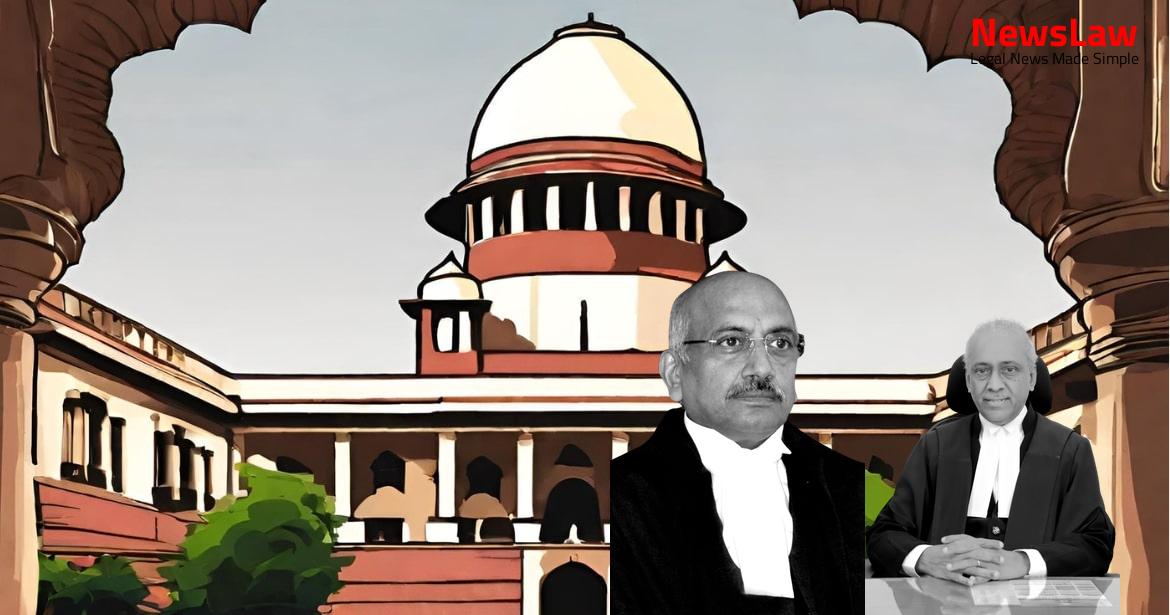Delve into the intricate legal analysis of a case involving the modification of land use in a town development scheme. The court’s in-depth examination of town planning regulations sheds light on the complexities of balancing development goals with regulatory requirements. This case underscores the importance of adhering to established procedures and considering the implications on various stakeholders in urban development projects.
Facts
- The request for amendment of the layout plan was rejected by the Deputy Director, T&CP and the appeal before the Commissioner, Ujjain was also dismissed.
- The State Government clarified that the appellant-board had not asked for a change in land use but for a modification of the approved layout plan.
- The appellant-board was directed to submit the proposal for modification before the Commissioner, Ujjain.
- The developer cannot change the status of land to deceive the allottees.
- The State Government partially allowed the revision petition and directed the appellant-board to file a revision application before the Commissioner, Ujjain.
- The Deputy Director, T&CP approved the modified layout plan after the revision application was filed.
- The Ujjain Municipal Corporation was not heard regarding the change in the layout plan.
- Lease deeds executed by the appellant-board in favor of third-party purchasers were declared null and void.
- The land in question was directed to be used as per the original layout plan.
- Allottees pay extra/higher charges with the expectation of enjoying amenities as per the original plan.
- The impugned judgment allows the writ petition filed by the first and second respondents after nearly seven years in 2015.
- The judgment holds that the Adhiniyam was enacted to prevent unplanned and haphazard development.
- Layout plans for residential schemes are prepared to provide open spaces for various purposes like roads, gardens, playgrounds, schools, hospitals, community centers, and shopping complexes.
- The first appellant, Madhya Pradesh Housing and Infrastructure Development Board, is a statutory board established under the Madhya Pradesh Housing and Infrastructure Development Board Act, 1972.
- The impugned judgment dated 26 July 2017 by the Indore Bench of the High Court of Madhya Pradesh favors Writ Petition No 7666 of 2015 filed by the first and second respondents Vijay Bodana and Ravindra Bhati.
Also Read: Analysis of Agency Relationships in Taxation
Analysis
- The modification of the layout plan was in accordance with the Adhiniyam and not contrary to the law.
- The impugned judgment did not find any violation of the prescribed procedure under the Adhiniyam.
- The delay in approaching the court and the creation of third-party rights were crucial factors considered by the High Court in its decision.
- The change of land use from commercial to residential was justified as the area was originally earmarked for a shopping complex with 131 shops.
- The town development scheme is subservient to the master plan and zonal plan, as per the provisions of the 1973 Act.
- The distinction between development plan, zonal plan, and town planning schemes in guiding land use and development was highlighted.
- The High Court’s reliance on promissory estoppel to restrict modification of layout plans was considered erroneous as changes are permitted under the law.
- The delay in filing the writ petition and the impact on third-party rights were key reasons why the High Court should not have entertained the petition.
- The failure to consider the adverse consequences on innocent plot owners deprived of their rights due to the delayed intervention was highlighted.
- Town and country planning in towns and cities involves development of land through land use, zoning plans, and regulation of building activities.
- The legislative scheme of the Adhiniyam was delineated in the case of Chairman, Indore Vikas Pradhikaran v. Pure Industrial Coke & Chemicals Ltd and Others.
- The court highlighted that the High Court does not normally assist those who are tardy, indolent, acquiescent, or lethargic in exercising its discretion.
- The change in the present case was from commercial to residential, therefore no objection or opposition from the Ujjain Municipal Corporation was necessary.
- Opposition and prejudice should not be presumed without grounds and reasons.
- Ujjain Municipal Corporation was not made a party and had no opportunity to present their stand on the change in the layout plan.
- The High Court could have issued notice to the Ujjain Municipal Corporation for their opinion if required.
- The State Government of Madhya Pradesh and authorities under the Adhiniyam supported the modification on record.
Also Read: Land Auction Dispute Resolution
Decision
- The appeal was allowed without any order as to costs.
- The appellant-board and respondent authorities were directed not to allot or sell any unsold residential plots.
- Areas were earmarked for a park/garden and a primary school.
- The appellant-board and authorities were instructed to ensure that the areas reserved for the primary school and park/garden are not converted into residential plots.
- Unsold plots were to be utilized for public amenities like parks, gardens, playgrounds, etc.
- Original layout plan showed the land in question reserved for a major shopping complex.
Also Read: Analysis of Bail Conditions in Criminal Appeal No. INSC 48/2024
Case Title: MADHYA PRADESH HOUSING AND INFRASTRUCTIVE DEVELOPMENT BOARD Vs. VIJAY BODANA (2020 INSC 262)
Case Number: C.A. No.-001998-001998 / 2020



